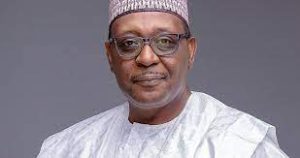Nigeria Economy: Macro Framework Poses Challenges To Investment

CPPE
Chief Executive Officer of the Centre for the Promotion of Private Enterprise (CPPE), Dr Muda Yussuf, has said the contribution of the Nigerian private sector to the Nigerian economy has grown in leaps and bounds over the years.
He, however, expressed concerns over the country’s macroeconomic management framework which continues to pose serious challenges to investors in the economy.
Yussuf, in a statement on the country’s independence anniversary celebration, said the troubling macroeconomic situation in recent years has manifested in weak and depreciating currency, high inflationary pressure, high and rising debt profile, exchange rate volatility, liquidity crisis in the foreign exchange market, increasing fiscal deficit, growing debt service burden, and the acceleration of money supply growth following the rising Central Bank of Nigeria financing of the deficit.
He also expressed concern over the high infrastructure deficit, cargo clearing challenges which have continued to worsen, high transactions cost at the ports, and weak productivity in the real sector largely as a result of infrastructure conditions, regulatory challenges and policy inconsistency.
According to him, persistent importation of petroleum products had continued to put pressure on foreign reserves and weakened the capacity of the CBN to support the forex market. Petroleum refineries have remained non-performing over the years.
He said the fiscal position of the federal government and the states is very weak, characterized by a high fiscal deficit, high and increasing debt profile and the associated debt service burden is a cause for concern.
He also said the state of insecurity continues to take its toll on the economy, especially on agricultural output and fueling food inflation and impacting the confidence of investors.
On way out of the quagmire, Yusuff emphasized the need for urgent steps to be taken to ensure a better macroeconomic management framework to stabilise the exchange rate, eradicate the challenge of illiquidity in the foreign exchange market and stem the current depreciation of the naira.
He added: “It is imperative to have urgent reforms in the foreign exchange market with a greater focus on supply-side strategy. There is a need to review the current disproportionate emphasis on demand management of the foreign exchange market. Most sectors are experiencing serious disruptions and dislocations because of the current foreign exchange policy regime”
Government, he said, should strengthen strategies to attract private sector capital to complement government financing of infrastructure as well as reduce the level of debt financing, especially the reliance on commercial debt to fund government operations.
He maintained that steps should be taken to attract foreign exchange through a strategy of ensuring new investment opportunities to stimulate foreign capital inflows into the economy.
Nigeria should be seeking more equity capital than debt capital, he advised. Nigeria should review its trade policy to support investment growth and investment sustainability and tax policy must support investment and not become a disincentive to investment, he also said.






